Honestly? I didn’t used to care much about “knowing myself.” I thought self-care was mostly about bubble baths, saying no to people, maybe doing a face mask or whatever.
But one day I don’t even remember why I caught myself spiraling over a really dumb argument with my sister. Like, full-on overthinking, feeling attacked, and not knowing why.
That night I wrote in my notes app: “why do I react so hard to little stuff?” and I swear, it changed everything.. slowly.
I used to think self-care was all about bubble baths, saying no to annoying plans, or maybe slapping on a face mask and calling it a day. Like, that’s it, right?
Just pamper yourself and you’re good. But then one random afternoon, I got into this dumb argument with my sister over something so small I can’t even remember what it was.
Next thing I know, I’m spiraling, overthinking every word I said, feeling like crap for hours. Why was I so worked up? What was even going on?
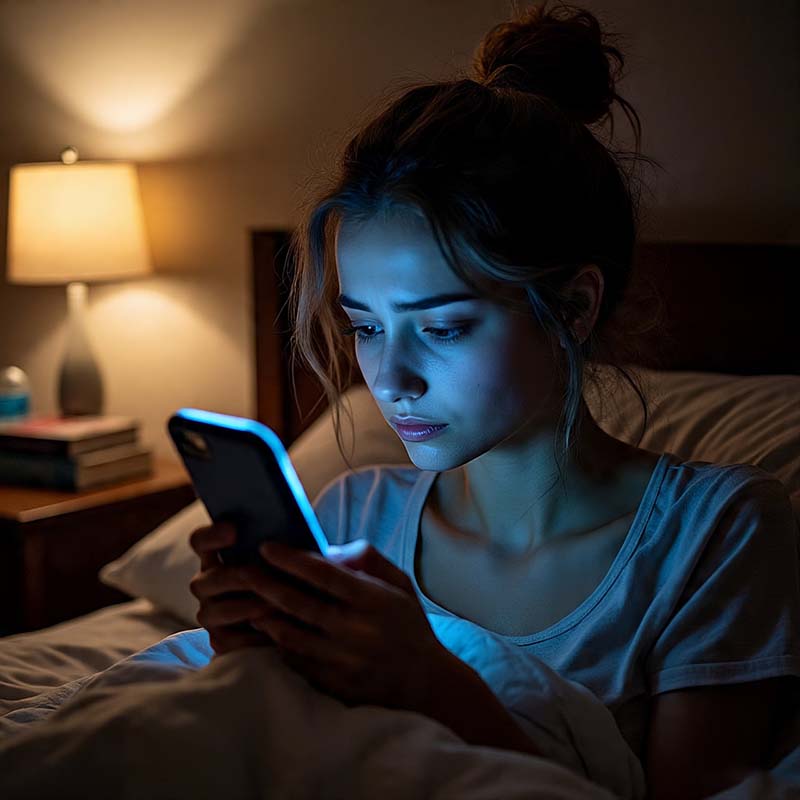
That’s when it hit me. Self-care isn’t just about treating yourself to nice things. It’s about knowing yourself figuring out what you need deep down so you can actually take care of yourself in a way that matters. In this article, we’re gonna dig into why knowing yourself is the first step to real self-care, how it can totally change your life, and some practical ways to start this journey. Ready to get into it? Let’s do this!
What’s Self-Care Anyway? And Why Should You Care?
Self-care’s all about doing stuff that keeps your body, mind, and soul in check. Could be eating a decent meal, getting enough sleep, hitting the gym, or just chilling with people who make you smile. It’s like recharging your phone battery if you’re running on empty, you’re not gonna be much use to anyone, including yourself. 😴
But here’s the thing: self-care isn’t just a checklist of “healthy” habits. It’s about living in a way that feels true to you. A super smart article from Psychology Today puts it like this: “Self-care means living a life aligned with your true self.” If you don’t know who that true self is, how’re you supposed to take care of them? That’s where knowing yourself comes in.

For folks in the LGBTQ+ community, this hits even harder. A lot of times, societal pressures or family expectations can make you feel like you gotta hide parts of who you are. Knowing yourself means embracing your identity and figuring out what you need to feel whole. Maybe that’s journaling about your journey or finding a community that gets you. It’s about building a self-care routine that’s true to your unique experience.
Self-Awareness Isn’t a Trend It’s Survival
Look, I get it. “Know yourself” sounds like something you’d see in a Pinterest quote or a yogga class poster. But here’s the deal: if you don’t understand what makeds you tick your triggers, your values, your patterns
then every little thing life throws at you can knock you off balance. Been there.
Sometimes self-awareness shows up as realizing, “Oh. I’m not lazy, I’m overwhelmed.”
Other times it’s more like, “Maybe I keep choosing chaos because peace feels unfamiliar.”
It’s not always pretty. But it’s real.
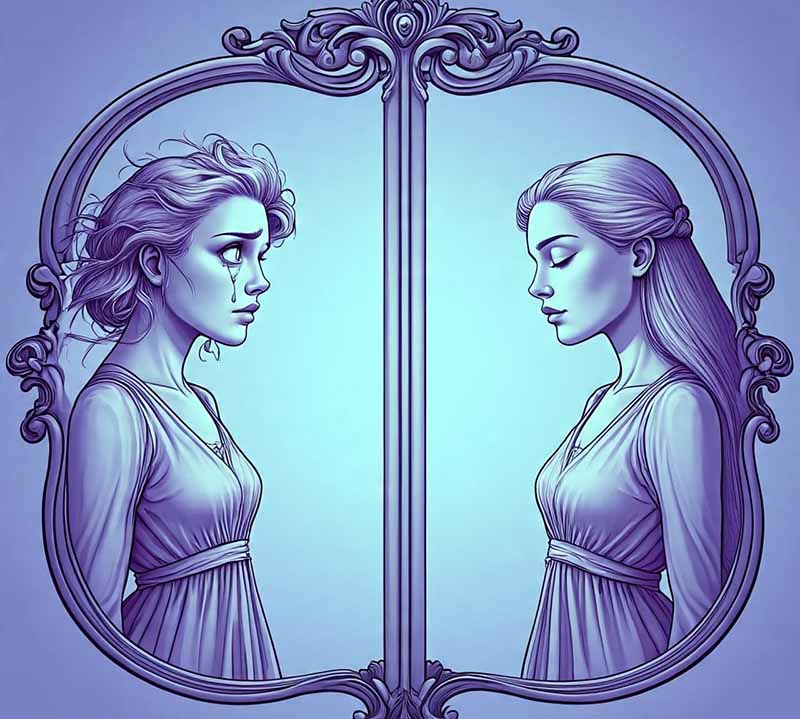
Final Thoughts (No Pressure, Just Honesty)
Self-awareness isn’t about perfection. It’s about curiosity. You don’t need a ten-step plan or a therapist (though both help). Sometimes it starts with just noticing.
Noticing what you avoid. Noticing what drains you. Noticing what actually lights you up and letting yourself follow that more often.
Why Knowing Yourself Is the First Step
Okay, so why’s knowing yourself such a big deal? Picture this: you’re on a treasure hunt, but you got no clue where you’re standing. How’re you gonna find the gold? Knowing yourself is like figuring out your starting point on the map. Without it, you’re just wandering around, maybe even going in circles, like I was after that fight with my sister.
Self-awareness is about getting what makes you tick what makes you happy, what stresses you out, what your values are, and where you need to draw the line. A cool post from The Behavior Hub says, “Knowing yourself helps you make choices that don’t screw you over and build a life that actually means something.” If you don’t know what sets you off, how’re you gonna avoid burnout or drama?
I remember this one time in college, cramming for a big exam, feeling like my brain was about to explode. Instead of powering through, I bailed and went to the backyard to listen to the birds for like half an hour. Sounds cheesy, but it calmed me down. Later, I realized I need nature to reset. If I didn’t know that about myself, I’d probably still be forcing myself through miserable study sessions.
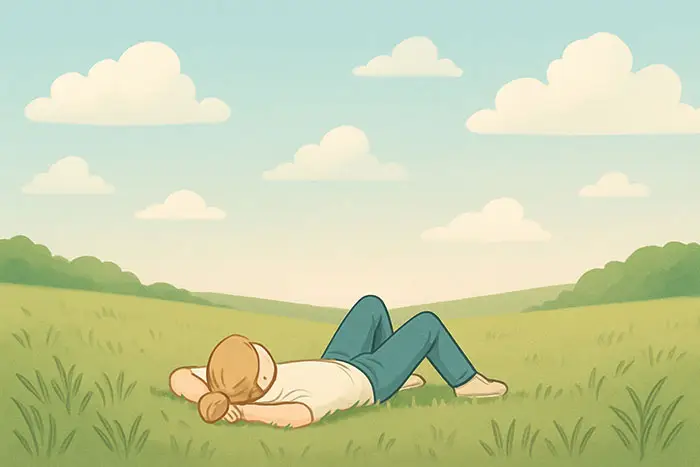
The Perks of Knowing Yourself
So, what’s in it for you? Why bother figuring yourself out? Here’s how it pays off:
1. Better Decisions
When you know your values, you make choices that actually line up with what matters to you. Like, if you figure out peace is more important than cash, you might ditch a high-stress job for something calmer, even if it pays less. BetterUp nails it: “Knowing yourself lets you build a life that’s yours, not what everyone else expects.” That’s freedom, right there.
2. Healthier Relationships
Knowing yourself helps you set boundaries. If you know you hate pointless arguments, you can steer clear of them or handle them better. I had this friend who used to get me all riled up over nothing. Once I realized I’m a pretty patient person, I started saying, “Hey, let’s cool off and talk later.” Saved our friendship, no joke.
3. A Life That Feels Meaningful
When you know what lights you up, you can chase it. If helping people makes you feel alive, maybe you volunteer or get into a career where you can make a difference. Socrates said it best: “To know thyself is the beginning of wisdom.” When you get yourself, you can build a life you’re stoked about.
4. Stress Management Like a Pro
If you know what stresses you out, you can plan around it. Like, if crowds make you antsy, you can balance a busy day with a quiet walk. Life Coach Directory says, “Self-awareness helps you spot your strengths and weaknesses so you can live a richer life.” Pretty solid advice.
How to Start Knowing Yourself
Alright, let’s get practical. How do you actually figure yourself out? Here’s some stuff I’ve tried that really works:
1. Personality Tests
Tests like Myers-Briggs or Enneagram are awesome for getting a sense of who you are. I took one and found out I’m an INFJ basically a dreamy do-gooder who overthinks everything. It explained so much about why I get stuck in my head. You can find these tests online, like at 16Personalities. They’re fun and kinda eye-opening.
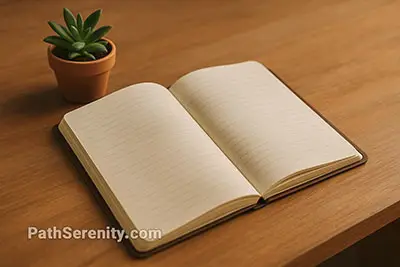
2. Journaling
Grab a notebook and jot stuff down for a few minutes every day. One cool method from The Behavior Hub is a 7-day journaling challenge:
| Day | Activity |
|---|---|
| Day 1 | Write down 15–20 values and narrow it to your top 3 |
| Day 2 | Explain why those values matter to you |
| Day 3 | Create a vision for your life |
| Day 4 | List distractions that pull you off track |
| Day 5 | Write about projects that energize you |
| Day 6 | Describe how you make decisions |
| Day 7 | Check in on your progress |
I did this and figured out my core values are peace, honesty, and creativity. It helped me see why some things bug me and how I can make my days better
3. Spend Time Alone
Take yourself on a date. Seriously. Go for a walk, grab a coffee, or just sit somewhere quiet. I was walking in a park one day when I remembered how much I loved drawing as a kid. Now I make time to sketch every week, and it’s like my own little self-care ritual.
4. Talk to People You Trust
Ask your close friends or family how they see you. Sometimes they notice stuff you don’t. Believe in Mind says, “Talking to people close to you can give you a fresh perspective on yourself.” It’s like holding up a mirror you didn’t know you needed.
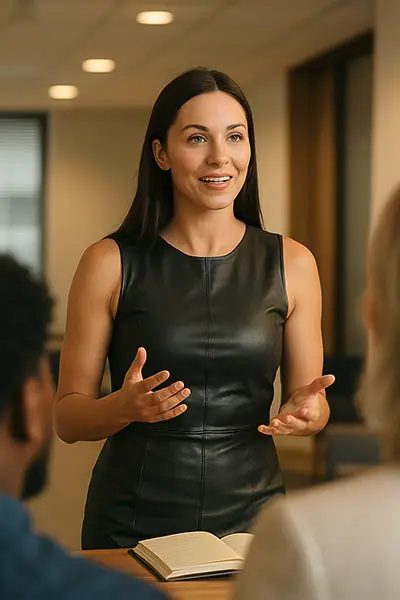
A Real-Life Example
One time, I was in a work meeting, feeling like everyone was judging me. My heart was racing, and I was freaking out. Later, I sat down and asked myself, “Why am I so worked up?”
Turns out, I’ve always been scared of being judged, thanks to a super strict teacher I had as a kid.
Once I figured that out, I could tell myself, “Chill, this is just an old fear. You’re fine.” That self-awareness helped me calm down and focus.
Quick Q&A (Stuff I Wish I’d Asked Sooner)
- Q: Is self-awareness the same as overthinking?
- A: Nope. Overthinking spins you in circles. Self-awareness grounds you.
- Q: How do I start being more self-aware?
- A: Start by journaling what triggers you. No filter. Just be real.
- Q: Do I need therapy for self-awareness?
- A: It helps, but you can also learn a lot on your own.
- Q: Why does self-awareness feel uncomfortable?
- A: Because you’re seeing parts of yourself you used to ignore.
- Q: Can sellf-awareness make me happier?
- A: Eventually. But it might make things messier first and that’s okay.
The Power of Knowing Yourself in Self-Care
When people talk about self-care, they often imagine bubble baths, vacations, or treating themselves to fancy coffee. But honestly, real self-care starts much earlier way before any of those things. It starts with knowing yourself.
Why Is It Important to Know Yourself First?
Last year, I had this strange phase where I tried everything: yoga classes, meditation apps, diet plans, you name it. But somehow, I was still exhausted and frostrated. The problem? I was trying things that didn’t fit me.
Knowing yourself helps you avoid that exhausting trial-and-error loop. When you understand your emotional triggers, your real needs, your natural energy patterns suddenly, self-care becomes targeted and effective.
For example:
- If you know you’re an introvert, you won’t force yourself to attend every social event.
- If you realize that you recharge through creative outlets, you’ll prioritize art or writing over passive TV watching.
- If you’re aware that mornings drain you, you won’t schedule heavy tasks before noon.
Self-care isn’t one-size-fits-all. It’s a deeply personal practice, and self-knowledge is your map.
Wrapping It Up
Knowing yourself is like finding the key to real self-care. When you get who you are, what you want, and what throws you off, you can build a life that feels yours. From personality tests to journaling to just chilling by yourself, there’s a ton of ways to start. So why not give it a shot? Grab a notebook, pour some coffee, and have a little chat with yourself. Trust me, it’s worth it. 😊
For more on this, check out these awesome resources:
- The Art of Self-Care Skills
- What Is Self-Knowledge?
- The Behavior Hub: Know Thyself
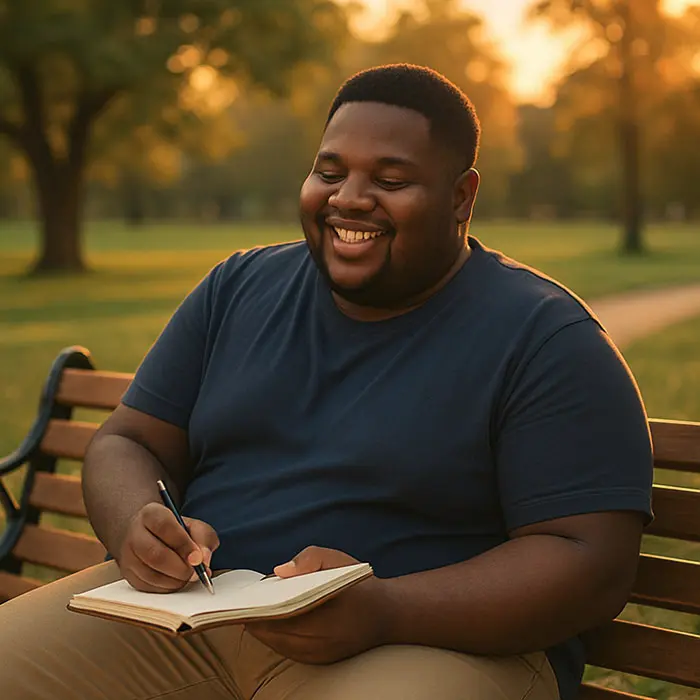
Addressing the “This Won’t Work” Voice
You might be thinking, “This self-awareness stuff sounds nice, but it’s not gonna work for me. I don’t have time to journal every day.” I totally get it life’s hectic. But here’s the deal: you don’t need hours. Just five minutes a day to think about what made you happy or stressed can make a huge difference. Start small. Maybe write down one thing that lit you up today. You’ll be surprised how it adds up.
What Is the First Step of Self-Care?
The absolute first step of self-care is simply paying attention.
Before you change anything, pause and observe:
- How do you feel when you wake up?
- When do you feel most energized?
- What drains you emotionally?
- Which people leave you feeling lighter or heavier?
I once kept a simple “energy log” for two weeks. Each eveening, I wrote three quick sentences:
1️⃣ What boosted my mood?
2️⃣ What drained me?
3️⃣ What surprised me emotionally today?
After just a few days, patterns started to emerge that I never noticed before. For example, I learned that noisy spaces drained me far more than I thought. And quiet early mornings, even just 20 minutes with coffee and silence, reset my mood for the whole day.
The first step of self-care is brutal honesty with yourself seeing both your strengths and weaknesses without judgment.

Why Did Aristotle Say Knowing Yourself Is the Beginning of All Wisdom?
Aristotle famously said: “Knowing yourself is the beginning of all wisdom.”
Honestly, he wasn’t wrong.
When you know yourself, you:
- Make better decisions.
- Avoid toxic patterns.
- Set healthier boundaries.
- Build relationships that actually nourish you.
- Pursue goals that matter to you, not what society expects.
I remember a friend who spent years chasing a high-powered career because “that’s what success looks like.” But when she paused and really asked herself what she valued, she realized freedom and creativity mattered more than status. Within a year, she pivoted to freelance design and her stress levels dropped dramatically.
Self-knowledge removes the exhausting pressure of living for someone else’s version of success. It gives you clarity.
Aristotle likely understood that most suffering comes from self-confusion when you don’t understand your needs, your wants, your boundaries, or your true values.
Related articles on this topic
that I recommend you don’t miss
Why Take Care of Yourself First?
Many of us especially caregivers, parents, perfectionists struggle with this. We feel guilty prioritizing ourselves.
I used to think self-care was selfish. My inner dialogue was brutal:
“Others need me more. I don’t deserve a break. I should be doing more.”
But over time, I learned this truth:
You can’t give your best to anyone if you’re running on empty.
Taking care of yourself first isn’t selfish it’s strategic. It means:
- You bring more patience to your kids.
- You support your partner without silent resentment.
- You show up at work with better focus and less burnout.
I often compare it to airplane oxygen masks:
“Put your own mask on first before helping others.”
When you’re well-rested, emotionally balanced, and mentally clear, you serve others far better than when you’re stretched thin.

Common Struggle: Fear of Facing Your True Self
One reason people avoid self-knowledge is fear.
- What if I discover I’m not who I thought?
- What if I realize I’ve wasted years chasing the wrong things?
- What if I uncover painful truths about my past?
This fear is real. But the pain of not knowing yourself is far worse in the long run. Denial keeps you trapped. Honesty sets you free.
I once avoided admitting that certain friendships were toxic because I didn’t want to feel like a “bad friend.” But once I faced it, set boundaries, and slowly distanced myself my mental health improved dramatically.
Self-awareness can hurt at first. But it heals far more deeply.
Final Thought
True self-care doesn’t start with spa days. It starts in the quiet moments where you listen honestly to yourself.
- What do I need?
- What am I avoiding?
- What patterns keep repeating?
The more you know yourself, the better equipped you are to build a life that actually fits you not one you’re simply enduring.
And honestly? That’s the most powerful kind of self-care there is
Time needed: 20 minutes
How to Know Yourself Better (HowTo)
- Take a personality test
Check out free ones on sites like 16Personalities
- Journal a bit
Spend 5 minutes writing about what made you happy or stressed today.
- Hang out with yourself
Go for a walk or grab a coffee alone to think
- Chat with friends
Ask them how they see you for a fresh perspective
It helps you figure out what you really need to feel good, instead of just doing what looks “self-care-y” on the surface
Try a quick personality test online or jot down what made you happy today for five minutes. Small steps go a long way.
It means being aware of your emotional patterns, needs, and triggers and acting in alignment with them.
Try journaling, mindful reflection, or therapy. Ask yourself tough questions and sit with the answers
Yes! Self-awareness helps you recognize limits, avoid overwhelm, and choose healthier responses
✨ Last updated on 23.07.2025
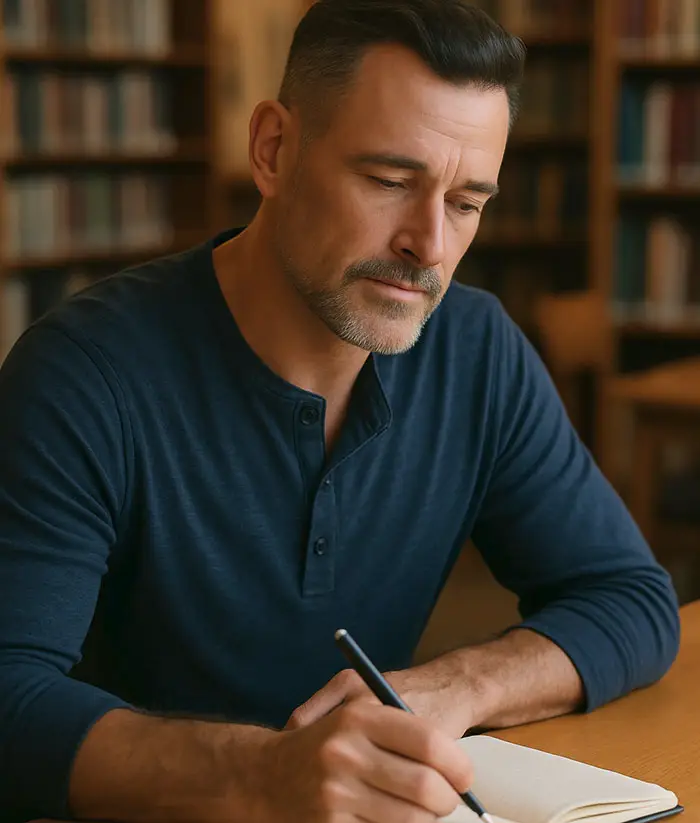










Leave a Reply